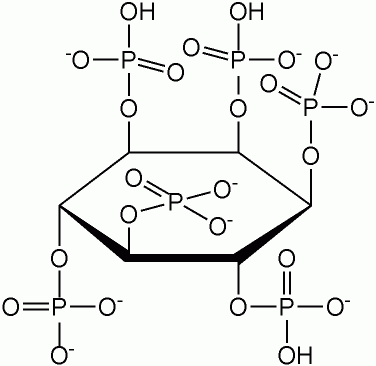Phytase
Genetika Research Center developed advance technology of phytase production
 |
Phytase is an enzyme that can break down the undigestible phytic acid (phytate) part found in grains and oil seeds and thus release digestible phosphorus, calcium and other nutrients.
The enzyme phytase is normally produced (endogenous phytase) in ruminants. Non-ruminants (monogastric animals) like human beings, dogs, birds, etc. do not produce this enzyme. Research in the field of animal nutrition has put forth the idea of supplementing phytase enzyme, exogenously, so as to make available bound nutrients like calcium, phosphorus, other minerals, carbohydrates and proteins.
Phytase is used as an animal feed supplement - often in poultry and swine - to enhance the nutritive value of plant material by liberation of inorganic phosphate from phytic acid (myo-inositol hexakisphosphate) and, thereby, to reduce environmental phosphorus pollution.
|
Phytase can be purified from transgenic microbes. Phytase has been produced recently in transgenic canola, alfalfa and rice plants. Phytase can also be massively produced through cellulosic biomass fermentation using genetically modified (GM) yeast. Phytase can also be isolated from basidiomycetes fungi. A strain of transgenic pig can produce phytase, thus reducing their environmental impact.
It is classified under EC 3.1.3.26.
For more information please contatc us here